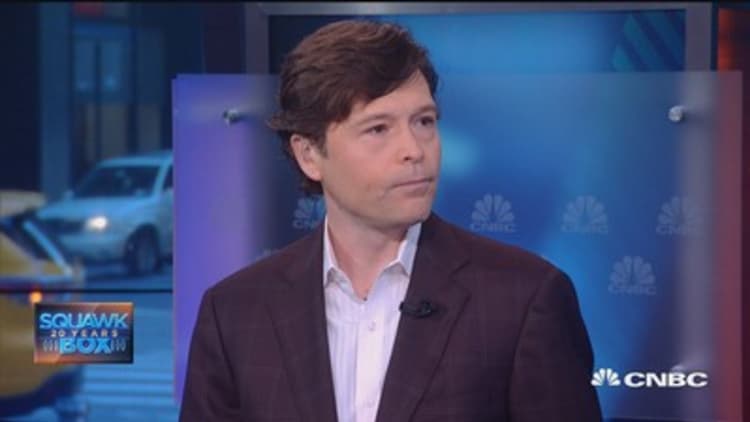
The brand of radicalization by the so-called Islamic State is much different than the ideology of previous terror groups because it departs from traditional channels of influence, anti-terrorism expert Evan Kohlmann said Monday.
Through sophisticated online propaganda, ISIS recruits are made to feel like they're part of something bigger than themselves, said Kohlmann, chief research and development officer at Flashpoint, a company that specializes in exposing terrorists on websites hidden from public view.
"They can be like Batman. They can wage fights against injustices around the world as they see it," he said. The perpetrators of the Paris attacks "were not religious fanatics to begin with," someone gave them a purpose.
Read MoreTerror attacks hit at worst possible time: Eurasia
The deadly series of attacks in Paris on Nov. 13 have sparked terrorism concerns across Europe, particularly in Belgium where the now-deceased architect of the attacks and other suspects were from. After the warning from the Belgian prime minister of an imminent Paris-style attack, the capital city of Brussels entered Day Three of a lockdown.
The reason France and Belgium, two relatively small countries compared to the U.S., are such hotbeds of extremists is because it's difficult to live as a religious or ethnic minority there, Kohlmann contended on CNBC's "Squawk Box" in an interview. "There's not the same level of social integration that you have here. There's not the same level of economic parity. As a result people don't feel like necessarily that they're part of that society."
Kohlmann, an NBC terrorism analyst who's consulted with the Justice Department and the FBI, said, "These guys are conditioned that ... you don't listen to the clerics, they don't know what they are talking about."
"Ninety percent of the mosques have nothing to do with [ISIS]," he continued, saying the other 10 percent have only a marginal influence.
The biggest concerns among law enforcement and counterterrorism officials in the U.S. are possible attacks by a "lone wolf" or a "copycat," Kohlmann said.
Authorities don't believe terror groups have the same capabilities in the U.S. as those in Europe, he said. "There just aren't as many folks here in the U.S. that have traveled to Syria; who've gotten training from ISIS; [and] who have made direct contact with ISIS."
"Most of the folks here in the U.S., they're limited to Internet contact," he continued. "So they don't have the training necessary to do something on the scale of what happened in Paris."


